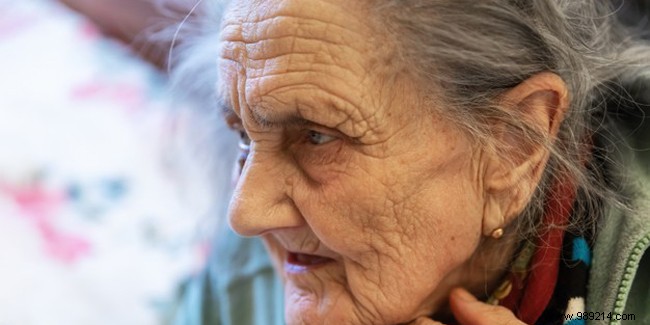
Diogenes Syndrome refers to a behavioral disorder that can affect anyone, but more particularly women over the age of 70. It is characterized in particular by a compulsive accumulation of objects, by a negligence of its personal hygiene, but also domestic. Diogenes Syndrome most often occurs in people who are socially isolated.
Diogenes Syndrome is a mental disorder that is characterized by irrational behaviors such as the compulsive and abnormal accumulation of useless objects (most often waste), and also the lack of both bodily and domestic hygiene.
Concerning the symptom which consists for the person affected by Diogenes Syndrome of piling up objects and rubbish, it can take two forms:either the person accumulates objects voluntarily while being aware of what they are doing, or this accumulation occurs over time through neglect, most often due to depression, and without her realizing that her living environment is not normal.
An abnormal disorder that lasts over time is often a sign that a person has Diogenes Syndrome. If the latter can concern a person at all times of their life, it is often observed in the elderly, and in particular women, who most often live alone or who have suffered a significant psychological shock.
Diogenes Syndrome most often appears after psychological trauma. It may be, for example, the death of a loved one, a major change in life such as, for the elderly, having to leave their home because of their state of health or a loss of autonomy and being obliged to integrate a specialized establishment (a retirement home, an Ehpad, etc.). The behavioral disorders characteristic of Diogenes Syndrome thus occur after a shocking event that is hard to live with.
Diogenes Syndrome also particularly affects isolated people. An unfortunately common situation among the elderly who suffer from a disability or a health problem that prevents them from continuing to live normally, and who do not benefit from the support of loved ones. This illness, which takes the form of an accumulation of objects, most often rubbish, is a way for these already isolated people, unconsciously, to alienate others.
In seniors, Alzheimer's disease or types of dementia are often associated with Diogenes Syndrome.
Diogenes Syndrome is difficult to diagnose because it mostly affects single people, who are socially isolated, and therefore rarely followed from a medical or other point of view. If, despite everything, the attending physician of the person concerned by this disease can, during an appointment in his office, note the lack of personal hygiene of his patient, one of the signs of Diogenes Syndrome, very often, it is the neighbors who notice the accumulation of waste in his home, and also the lack of domestic hygiene, and warn about the situation of the person, in particular when the lack of hygiene leads to the proliferation of insects , mold, and foul odors.
In the context of Diogenes Syndrome, the most complicated thing is to get in touch with the person who suffers from it since it is most often a socially isolated person. Once the Diogenes Syndrome has been diagnosed, social monitoring is set up through specialized educators and psychologists. Depending on the state of health of the person, and their hygiene problems, medical support can also be decided.
Depending on the case, people with Diogenes Syndrome can be admitted to specialized health establishments, in principle psychiatric services, where the teams seek to find out the causes at the origin of this behavioral disorder in order to help the person psychologically to fix it.
In addition to medical and social care of the patient, there are currently no specific treatments to cure Diogenes Syndrome. Behavioral therapy is put in place, combined with taking medications used for other pathologies such as anxiety, depression, or even dementia.
People with Diogenes Syndrome can also see their condition improve a little when someone comes to their home to clean and tidy their interior.